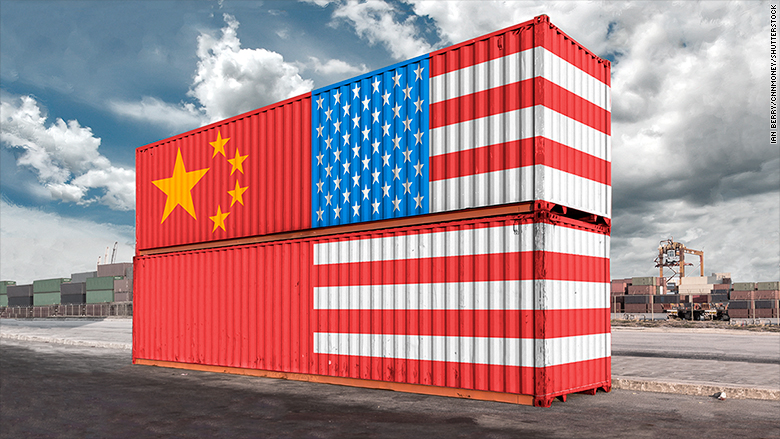Trump threatened to slap tariffs of 45% on Chinese exports and label Beijing a “currency manipulator.”
With the beginning of Donald Trump as president in the White House, analysts are drawing up shortlists of winners and losers from any eruption of tensions among the world’s top two economies.
As it says “Payback is Hell” and the U.S. will experience it soon, as China prepares to hit back hard and fast in the coming trade war with the U.S. The economic conflict will have major ramifications across a broad front of U.S. industries.
Bellow you can find some reasons why starting a trade war is a bad idea for both countries:

1.Big brands are vulnerable
Big names of America’s corporate crown jewels would be vulnerable to retaliation by Beijing.
Starbucks, HP,Boeing and Apple , to name a few, have placed huge bets on China. All three companies say the country of 1.3 billion will soon be their single largest market, if it’s not already.
But that momentum could all be easily erased. Here’s what Global Times, a newspaper backed by the Communist Party, had to say about how Beijing would respond to tariffs of 45%:
“A batch of Boeing orders will be replaced by Airbus,” the paper said Monday. “U.S. auto and iPhone sales in China will suffer a setback, and U.S. soybean and maize imports will be halted.”
2. China streams money into the U.S.
China is the world’s second largest economy but in the last 30 years U.S. firms have invested more than $225 billion in China according to Rhodium Group. In return, China has invested roughly $65 billion back in US products.
In the mean time China is the top holder of U.S. government bonds with $1.3 trillion on their books.
3. Jobs & Currency.
Trump has promised to bring back lost jobs to the U.S. — especially in manufacturing.
In more than 90% cases, these claims don’t reflect the economic reality. Textile factories that once flourished in North Carolina mill country were lost decades ago to China.
Now costs are already too high there, and jobs are already shifting to countries like Bangladesh and Vietnam where labor is even less expensive.
Calling China a currency manipulator is a non sense and China recently has been intervening to keep its currency high, not low. Trump has repeatedly accused Beijing of manipulating the yuan, arguing that China has boosted exports by keeping it artificially low but in the mean time experts including the International Monetary Fund say the yuan is fairly valued. In fact, Beijing is actively supporting the currency to prevent it from falling.
4.China will seize the moment
In president elected Trump will continue his idea to slap tariffs Beijing will be ready to capitalize.
Free trade negotiations between the U.S. and Europe are also on life support with little hope of being revived by President-elect Trump.
China, however, is now well positioned to draw its neighbors into a closer embrace. A trade war could help.
5. History repeats until you learn from it.
8 years ago in 2009, Presidents Obama administration sought tariffs against China for dumping tires on the U.S. market. The low-grade conflict simmered for years, eventually expanding to include solar panels, steel and other products.
American consumers are liable to pay a price at the register if Trump seeks new confrontations. One key reason: huge tariffs on Chinese goods will make them way too costly or drive them out of the U.S. market.
A very bad thing because finding a better and cheaper alternative is almost impossible to find.
6. China will respond.
During his campaign Trump said to people that hey have power over China – great economic power that people can’t see.
We can all agree that the U.S. handles significant power over Beijing. Huge amounts of trade flows in both directions across the Pacific, but China sells far more to the U.S. than it buys from American companies. Beijing has more to lose.
“If the U.S. imposes high tariffs on Chinese imports, then the smart move for China is to retaliate. China is too big to be bullied in this way,” David Dollar, the U.S. Treasury Department’s former financial emissary to Beijing, wrote recently on China File.



